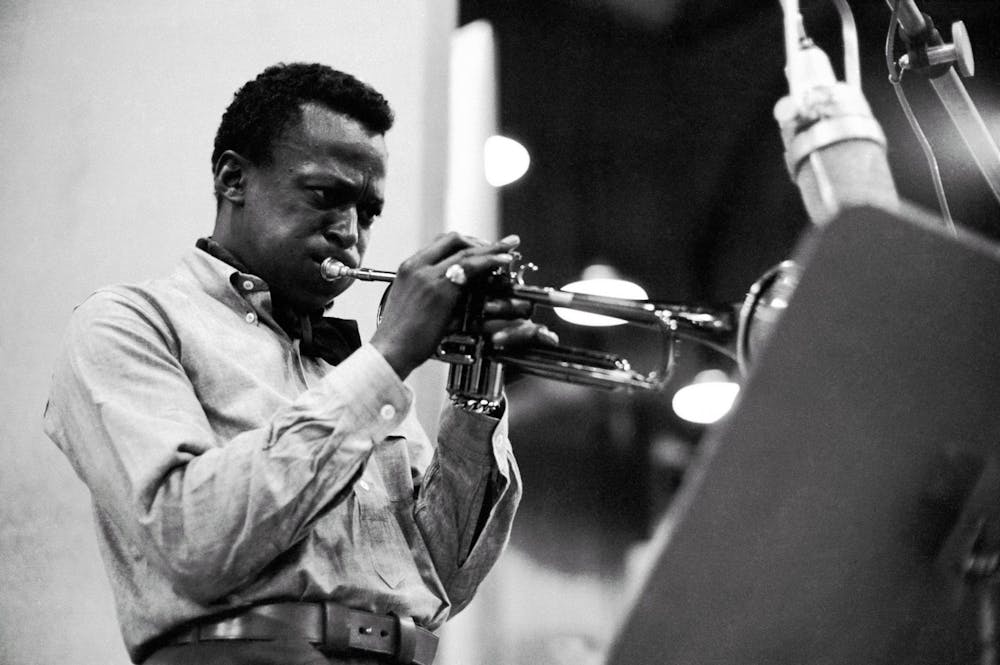It's common knowledge that laws in America have a dark history, especially as they relate to Black people. We see this darkness in the slave codes that set the terms of how Black people were to be treated under slavery, Jim Crow laws enforcing segregation or even more recently redlining. These were all topics in my high school history class, but an area of law that isn’t discussed enough is music law, namely copyright law.
Copyright laws changed the way musicians and songwriters interacted with major studios and each other. Laws like The Copyright Act of 1976 made it illegal to sample music and made it easier for major labels to prey on independent artists’ songs and use them for their own gain. This led to genres of music such as jazz, rock and hip-hop to be shaped by copyright law. All these genres were pioneered by Black artists, and copyright law stunted the growth of these artists’ music.
Much of American music has its roots in Blackness. Jazz music was started in New Orleans by Black folk and dominated the music world for decades. Rock and roll has much debate on who specifically invented the genre, but according to Mic, a media company that reports on current events and culture, the contenders for that title are primarily Black, such as Little Richard, Chuck Berry and Rosetta Tharpe. Hip-hop has its origins in primarily Black neighborhoods during the 1977 NYC Blackout, where much of the music production equipment was looted from stores, allowing hundreds to try their hand at being a DJ.
Jazz, as a genre, depends on the theft of ideas to create new songs. Chord progressions could be lifted from one song to another, certain melodies can even be heard across the whole genre. Songs composed during the heyday of jazz were expected to be covered by other jazz musicians, and certain songs were hailed as jazz standards, or songs that every jazz musician should know by heart. Jazz was a collaborative music, with most players being Black folk such as John Coltrane, Miles Davis and Charlie Parker. Multiple artists would cover the same song, with each of them doing something differently, but still technically making the same song. The difference between their performances would be improvisation, where musicians play without any written music to follow, just from their heart.
The Copyright Act of 1976 was effectively the final nail in jazz's coffin, radically changing the rules of how songs can be covered. Improvisation, the backbone of jazz, was deemed derivative, meaning it was equivalent to plagiarism, and artists would need to pay to use others' songs. The act made the borrowing nature of jazz illegal, and while the genre has continued it feels as if its collaborative nature decreased.
Another example of music theft is the amount of rock and roll songs that were stolen from Black folk and covered by white musicians who gained more popularity and profit. There are plenty of lists of songs that are incredibly popular, including hits like "Surfin U.S.A. and "Hound Dog," that were originally recorded by a Black person. This was an ongoing pattern in the industry, as according to Global News, with many Black musicians never given proper credit for their work. Or they were paid meagerly for the rights of their songs, while studios had white bands perform them. Black musicians would often write a song for a studio, but they wouldn't retain the rights to their composition. This meant that white bands chosen from the studios would play the song instead, and the original Black composer would be forgotten. The copyright law in place meant this white profit from Black work was the norm for many studios during the age of rock and roll.
While the world made it clear that rock and roll wasn't going to be recognized as a genre with its origins in Blackness, Black folk were busy starting yet another genre of music: hip-hop. Similarly to how jazz evolved, hip-hop relied on a form of "music theft," cutting snippets of other songs and stringing them together to make something new. The early DJs of the ‘70s would often just play two records of the same song at the same time and spin them at different speeds and directions to create something new. This was the start of sampling, taking a part of a song to make your own.
Of course, this was quickly criticized, with many of the artists of the original songs being sampled comparing it to plagiarism. The Copyright Act meant that artists could crack down harder on these practices, and we still see the remnants of that today every now and then, such as Kendrick Lamar's song "Rigamortis" going to court. There are countless examples, as the history of this is long and storied.
The copyright law in America seems to be yet another area of law that directly led to Black people losing agency in the country. While not often discussed outside of academic journals, it's important to know how even something as innocuous as music is heavily shaped by the laws in place. The Copyright Act of 1976 attacked three genres of music that Black folk had a real foothold in and kept them from getting proper recognition for their work. It makes me wonder how many other laws, relatively unknown to the public, affect Black life so significantly.




